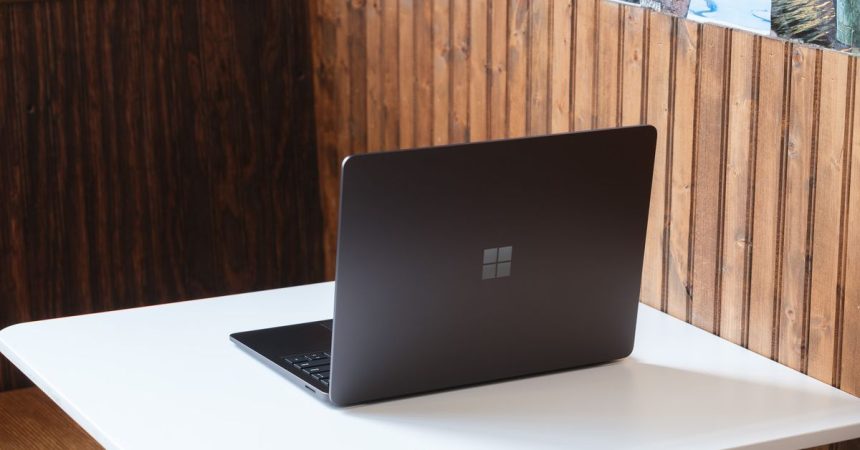Microsoft’s Surface lineup is poised for a significant overhaul in 2025, with a focus on integrating AI capabilities and enhancing user experience. The refresh will encompass the Surface Pro and Surface Laptop, both transitioning to Intel’s Lunar Lake chips, marking a pivotal shift towards more powerful AI-driven devices. These new models will be designated as Copilot Plus PCs, aligning them with the existing Snapdragon versions and signifying their enhanced AI functionalities. This integration represents a significant step forward, as the previous Surface Pro 10 and Surface Laptop 6, powered by Intel Meteor Lake chips, lacked the necessary NPU capabilities to qualify for the Copilot Plus designation. The upcoming models will also benefit from anti-reflective screen coatings for improved visibility and readability, while the Surface Laptop is rumored to gain a card reader and 5G connectivity options, catering to the needs of professionals and content creators.
The anticipated integration of Intel Lunar Lake chips in the Surface Pro and Surface Laptop signifies a commitment to delivering robust AI performance. These chips are expected to offer substantial improvements in processing power and efficiency compared to their predecessors, enabling more seamless and responsive AI-driven features within the Copilot Plus ecosystem. By incorporating these advanced chips, Microsoft aims to provide users with a more intuitive and productive computing experience, leveraging the power of AI for tasks like content creation, data analysis, and personalized assistance. The inclusion of anti-reflective screen coatings further enhances the user experience by reducing glare and improving display clarity, particularly in brightly lit environments. This feature contributes to increased comfort and productivity, especially during extended periods of use.
The Surface Laptop’s potential additions of a card reader and 5G connectivity reflect Microsoft’s responsiveness to user feedback and the evolving needs of the mobile workforce. The card reader simplifies file transfer and data management, while 5G connectivity ensures seamless access to cloud services and online resources on the go. These additions further solidify the Surface Laptop’s position as a versatile and powerful device for professionals and students alike. The combination of these features, along with the enhanced AI capabilities, positions the Surface Laptop as a compelling choice for users seeking a portable yet powerful computing solution.
The Surface Laptop Studio, the company’s flagship convertible laptop, is also slated for an upgrade, potentially featuring either Intel or AMD chips. This upgrade aims to address the current model’s battery life concerns, a key aspect highlighted in previous reviews. The choice between Intel and AMD chips suggests that Microsoft is exploring different avenues to optimize performance and power efficiency in the Surface Laptop Studio. Regardless of the chosen architecture, the focus will likely be on delivering a more balanced performance profile that addresses the battery life shortcomings of the current model.
In other news, the Surface Studio 2 Plus all-in-one is officially discontinued, indicating a shift in Microsoft’s strategy for this particular product line. The discontinuation suggests that a Copilot Plus version of the Surface Studio is unlikely in the near future. This move may indicate Microsoft’s intention to focus its resources on other product lines, such as the Surface Pro and Surface Laptop, which are seeing increased demand and adoption in the market.
Finally, reports hint at the development of a new Surface device with an 11-inch display, described as a hybrid between the Surface Go and Laptop Go. This device is expected to feature premium components and a Snapdragon X Plus chipset, potentially targeting a niche market demanding a highly portable yet powerful device. This potential hybrid device represents a move towards offering more specialized devices that cater to specific user needs and preferences. By combining the portability of the Surface Go with the performance capabilities of the Laptop Go, Microsoft aims to create a unique offering that fills a gap in the current market. The inclusion of a Snapdragon X Plus chipset further emphasizes the focus on portability and power efficiency, making it ideal for users who prioritize mobility.



